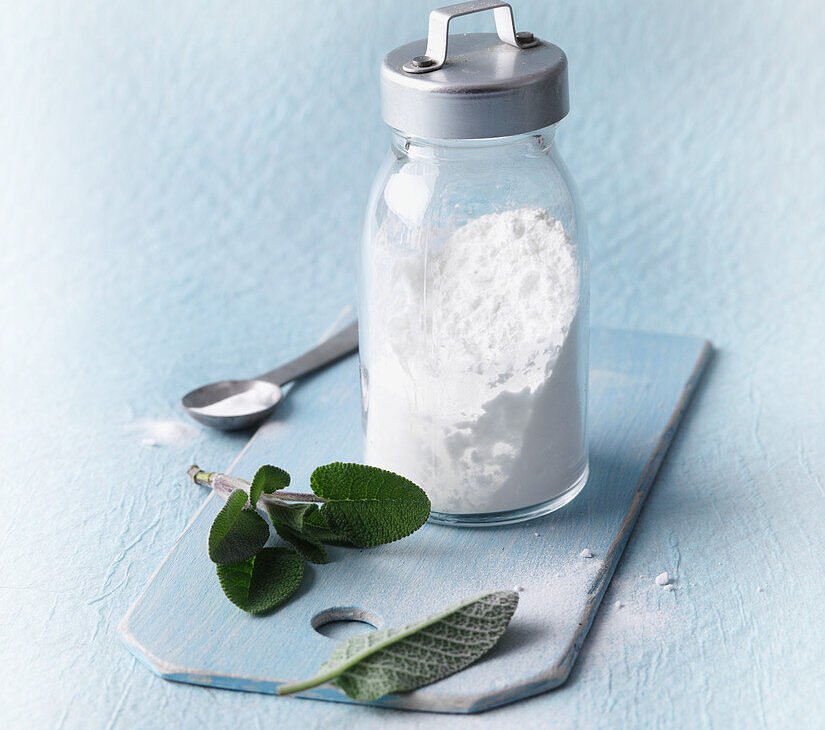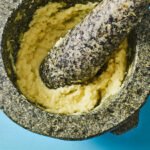Baking soda, also known as sodium bicarbonate, is a common household item. It is mainly used as a leavening agent in baking. When mixed with acidic ingredients, it creates bubbles of carbon dioxide that help the dough rise.
Besides baking, baking soda can neutralise acids. This makes it useful for easing heartburn and for oral care.
Additionally, it might help lessen inflammation from autoimmune conditions. While it’s generally safe in small amounts, using too much or having certain health conditions can cause serious side effects. Always use baking soda carefully.
Managing Heartburn
Heartburn is a symptom associated with acid reflux, which happens when acidic contents from the stomach backflow into the oesophagus. This often occurs after meals, resulting in a painful burning sensation in the chest and an acidic or sour taste in the throat.
Baking soda serves as an essential component in various over-the-counter (OTC) antacids, such as Alka-Seltzer, which is known to alleviate heartburn. It functions by swiftly neutralising the excess stomach acid responsible for acid reflux symptoms.
If you choose to use baking soda for heartburn relief, mix half a teaspoon into at least half a cup of water. OTC antacids that contain baking soda should be avoided during pregnancy due to a heightened risk of fluid accumulation and metabolic alkalosis (a condition where the blood becomes overly alkaline).
Related: Baking Soda Substitute
Potential Benefits for Athletic Performance
Baking soda seems to have a positive effect on enhancing athletic performance. The International Society of Sports Nutrition recently issued a statement indicating that baking soda enhances performance in muscular activities, combat sports, and high-intensity workouts for both men and women.
Beneficial results have been observed with doses ranging from 0.2 to 0.5 grams per kilogram of body weight, with the most effective performance-boosting results seen at 0.3 grams per kilogram, taken 60 to 180 minutes before exercising. While the exact mechanism remains unclear, baking soda may boost athletic performance by lowering acidity levels in the blood and muscles.
Possible Improvement in Dental Health
Baking soda is a common ingredient in toothpaste, serving as a gentle abrasive that removes surface stains and plaque without harming enamel. It neutralises acids from oral bacteria, which may help prevent plaque buildup and tooth discolouration from substances like tea and red wine.
Studies have shown that toothpaste containing 67% sodium bicarbonate can significantly improve plaque and gum health in individuals with gingivitis.
Another review found a small improvement in plaque removal after a single brushing with baking soda toothpaste, though no major long-term differences were observed compared to regular toothpaste. Further research is needed to evaluate the long-term efficacy of baking soda in oral care.
May Alleviate Inflammation
Although studies are still in the early phases, baking soda might help reduce inflammation resulting from autoimmune disorders like rheumatoid arthritis. Research conducted in humans and rodents indicates that a baking soda solution may assist the spleen—an organ involved in the immune response—in fostering an anti-inflammatory setting.
Relief for Insect Bites and Stings
Baking soda can alleviate pain and itching associated with insect bites. It is a common ingredient in various OTC bug bite ointments and creams. Additionally, a baking soda paste can be easily prepared at home for immediate relief.
The Centres for Disease Control and Prevention (CDC) recommends mixing one tablespoon of baking soda with water, applying the paste to the insect bite, and letting it sit for ten minutes before rinsing off to help relieve bites and stings.










